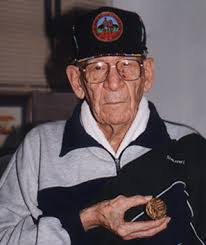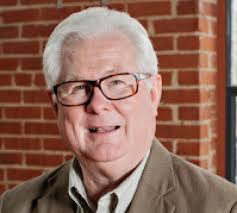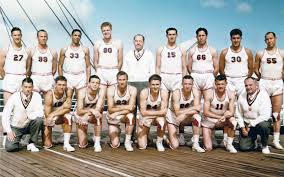The NBA Finals date back to 1947 (when they were known as the Basketball Association of America Finals) and the very 1st NCAA tourney was held in 1939. Olympic basketball competition is even older: it debuted as a demonstration event in 1904 and the men’s version became a medal sport in 1936, with the women finally getting their chance to go for the gold in 1976. The United States has dominated Olympic basketball competition from the start: the men have won 15 gold medals in the 18 tournaments they have participated in during the past 84 years, while the women have won 8 gold medals in the 10 tournaments in which they have competed during the past 44 years. Those of you who were looking forward to the 2020 Olympics opening ceremonies in Tokyo on July 24, 2020 will have to wait an extra 364 days, as the coronavirus caused a postponement until July 23, 2021. Due to the absence of college basketball since mid-March, HoopsHD’s Jon Teitel decided to fill the void by trying to interview as many prior Olympic players/coaches as possible so that you have something to read this summer while not watching the Summer Games. We continue our coverage by chatting with former Oklahoma State player Jack Herron about Jesse Renick winning a gold medal in 1948. Today marks the 72nd anniversary of Jesse scoring 2 PTS in a 65-21 win over France to clinch the gold medal.
 (photo credit: hof.chickasaw.net)
(photo credit: hof.chickasaw.net)
Renick’s nickname was “Cab”: how did he get the nickname, and how did he like it? He got the nickname during high school and everyone on his college team called him “Cab”. His real name was Jesse Bernard Renick.
He was born/raised in rural Oklahoma and began his college career at Murray State where he scored almost 20 PPG: why did he decide to transfer to Oklahoma A&M, and how did he like playing for Hall of Fame/Olympic coach Henry Iba? He grew up near Murray State and did not have a gym nearby so he played outdoors on dirt courts. He was in his prime by the time he played for Iba and was very strong/tough. His scoring average dropped to around 6 PPG but it was common for most transfers to Stillwater to only score in single-digits. He was a very good defensive player both in college and AAU ball.
He was the 1st 2-time All-American in school history: what did it mean to him to receive such outstanding honors? I do not think that many of Iba’s players tried to be an All-American: it was just the result of being a great player on a great team. I worked hard to get him inducted into the Oklahoma Sports Hall of Fame.
The day after the invasion at Pearl Harbor in 1941 he enlisted in the Navy and served until WWII was over: what impact did his service have on him either on or off the court? He never mentioned the war to me when I used to visit him but he deserves a lot of credit for being a veteran. Fellow Cowboy Bob Kurland called all of the WWII veterans the real heroes.
He was a 2-time AAU All-American with the Phillips 66ers in 1947/1948: how did he like having Kurland as a teammate? I think that was a significant factor in his ability to make the 1948 Olympic team along with several of Adolph Rupp’s Kentucky players. They were good friends and proud to have made the Olympics.
He was captain for team USA at the 1948 Olympics: what did it mean to him to represent his country, and what did it mean to him to win a gold medal? He kept the medal in his pocket and showed it to anyone who wanted to take a look! The other players must have thought highly of him since they named him captain, and it was a big honor as well to represent his country since he was a veteran.
He is 1 of only 3 Native Americans (along with Billy Mills/Jim Thorpe) to win an Olympic gold medal: how proud was he of his heritage, and how proud were his people of him? The Chickasaw nation is very proud of that fact. Renick did not make a big deal out of it himself but all of the great athletes were like that. I am sure he was also friends with Allie Reynolds, who was nicknamed “Super Chief”.
After the Olympics he coached the 66ers to the 1950 AAU national title and later worked as a coach at the Albuquerque Indian School: what made him such a good coach? He lost in the 1949 AAU Finals after winning 6 national titles in a row so I am sure that rubbed him the wrong way but he bounced back in 1950. He had a good record with the 66ers as a coach.
In 1999 he was inducted into the Oklahoma State Hall of Fame: where did that rank among the highlights of his career? Now we are a sports-oriented nation so people look back on his career favorably and give him his due, which is a great recognition that he deserved.
He passed away later that year: when people look back at his career, how do you think that he should be remembered the most? Similar to Kurland: he was a man of integrity and a great athlete. He came from a small poverty-stricken town but was able to become successful and reach great athletic heights. I think that he would simply want to be known as a fine man, which he was. There are only a handful of consensus All-Americans in OSU history and he is 1 of them.




